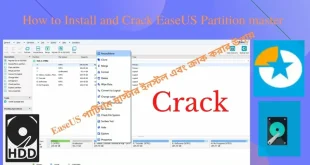In today’s digital era, data is a crucial asset for businesses and researchers alike. The ability to efficiently extract and analyze data from websites can provide valuable insights and drive informed decision-making. This process, known as data scraping, involves gathering large amounts of information from the web and transforming it into a structured format. Whether for market research, competitive analysis, or academic studies, data scraping offers a wealth of possibilities. This article delves into the concept of data scraping, its applications, challenges, and why Code Delirium is the best resource for mastering this essential skill of https://codedelirium.com/
Steps Involved in Data Scraping:
- Fetching Web Pages:
- The process begins by sending an HTTP request to the target website’s server.
- The server responds by sending back the HTML content of the requested web page.
- Parsing HTML Content:
- Once the HTML content is received, parsing tools or libraries are used to navigate through the HTML structure.
- Specific data elements (like text, images, links, etc.) are identified using selectors such as class names, IDs, or HTML tags.
- Extracting Data:
- The identified data elements are extracted from the HTML.
- Data scraping tools may employ techniques like regular expressions or XPath to locate and extract the desired data accurately.
- Cleaning and Formatting:
- The extracted data often requires cleaning to remove unnecessary elements like HTML tags, formatting characters, or irrelevant data.
- Data cleaning ensures that the final dataset is usable and structured appropriately.
- Storing the Data:
- Finally, the cleaned data is stored in a structured format such as CSV, JSON, database tables, or other storage solutions.
- This structured data can then be used for various purposes such as analysis, reporting, or integration into other systems.
Tools and Techniques Used:
- Programming Languages: Python, JavaScript (with Node.js), and Ruby are popular for data scraping due to their rich libraries and frameworks (like BeautifulSoup, Scrapy, Puppeteer, etc.).
- Automated Tools: There are also specialized software tools designed specifically for data scraping, offering user-friendly interfaces and advanced features.
Ethical and Legal Considerations:
- Respect Website Terms of Service: Websites often have terms of service that dictate whether scraping is allowed. It’s crucial to review and respect these terms to avoid legal issues.
- IP Blocking: Websites can detect and block scraping activities based on IP addresses. Techniques like rotating proxies or using IP rotation services can help mitigate this risk.
Applications of Data Scraping:
- Market Research: Gathering competitive intelligence, pricing data, and market trends.
- E-commerce: Monitoring product prices, reviews, and inventory.
- Content Aggregation: Collecting news articles, blog posts, or social media data.
- Lead Generation: Extracting contact information from business directories or social media platforms.
- Academic Research: Collecting data for analysis and studies.
What is Data Scraping?
Data scraping, also known as web scraping, is the automated process of extracting data from websites. It involves sending requests to a website’s server, retrieving the HTML content, and parsing this content to extract specific pieces of information. The extracted data is then cleaned and stored in a structured format, such as CSV, JSON, or a database, for further analysis and use.
How Does Data Scraping Work?
Fetching the Web Page: The process begins by sending an HTTP request to the target website to retrieve the HTML content of the web page.
Parsing the HTML: The retrieved HTML content is parsed to identify and extract the desired data. This often involves using HTML parsing libraries or regular expressions.
Storing the Data: The extracted data is cleaned, formatted, and stored in a structured format, ready for analysis or integration with other systems.
Applications of Data Scraping
Data scraping has a wide range of applications across various industries:
Market Research: Companies use data scraping to gather information about competitors, pricing, and consumer reviews, enabling them to make informed business decisions.
E-commerce: Online retailers scrape product details, prices, and reviews from competitor sites to adjust their strategies and stay competitive.
Real Estate: Real estate professionals scrape property listings, prices, and neighborhood data to analyze market trends and property values.
Academic Research: Researchers scrape web data for studies, such as social media analysis or tracking trends in news articles.
Job Market Analysis: Recruiters and job seekers scrape job listings to track employment trends and identify opportunities.
Challenges and Ethical Considerations
While data scraping offers significant benefits, it also presents challenges and ethical considerations:
1. Legal Issues: Scraping data from websites without permission can lead to legal issues, as some websites have terms of service that prohibit data scraping.
2. IP Blocking: Websites may detect and block scraping attempts, requiring the use of proxies or other techniques to bypass restrictions.
3. Data Quality: Ensuring the accuracy and cleanliness of scraped data can be challenging, especially when dealing with large volumes of information.
Why Code Delirium is the Best Resource for Data Scraping
For those looking to master data scraping, Code Delirium (https://codedelirium.com/) stands out as the premier resource for several reasons:
1. Comprehensive Tutorials: Code Delirium offers detailed tutorials that cover everything from the basics of web scraping to advanced techniques. These tutorials are designed to help both beginners and experienced developers enhance their skills.
2. Practical Examples: The platform provides practical examples and real-world use cases, allowing users to apply their knowledge to actual data scraping projects.
3. Cutting-Edge Tools: Code Delirium introduces users to the latest tools and libraries for data scraping, ensuring they stay up-to-date with industry trends and best practices.
4. Community Support: Users can join a vibrant community of developers and data enthusiasts who share tips, troubleshoot issues, and collaborate on projects.
5. Ethical Guidance: Code Delirium emphasizes the importance of ethical data scraping, providing guidelines on how to scrape data responsibly and legally.
Conclusion
Data scraping is a powerful technique that unlocks a wealth of information from the web, driving insights and innovation across various fields. As the demand for web data continues to grow, mastering data scraping becomes increasingly valuable. Code Delirium offers the best resources for anyone looking to learn or enhance their data scraping skills, providing comprehensive tutorials, practical examples, and a supportive community. Whether you’re a business professional, researcher, or developer, Code Delirium can help you harness the full potential of web data scraping.
For more information and to start your data scraping journey, visit [Code Delirium](https://codedelirium.com/).
 Daily Blogger News Stay updated with the latest trends and insights. Your reliable source for daily updates and information.
Daily Blogger News Stay updated with the latest trends and insights. Your reliable source for daily updates and information.







